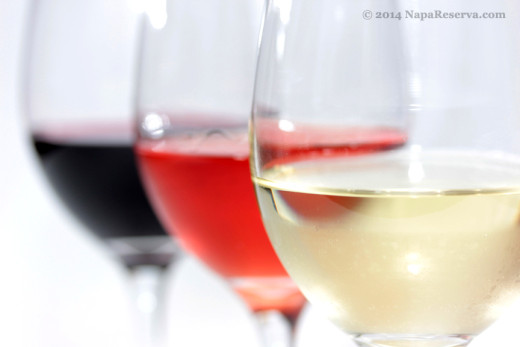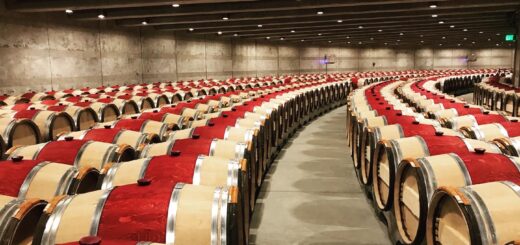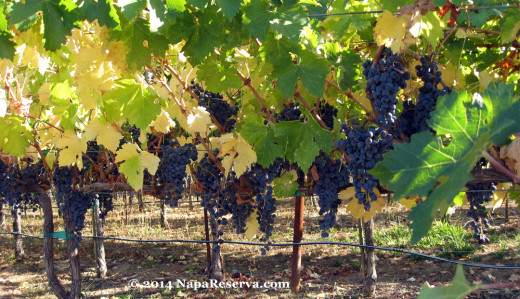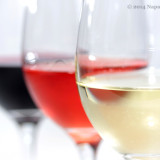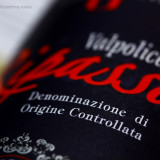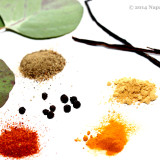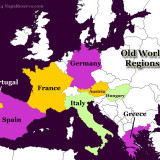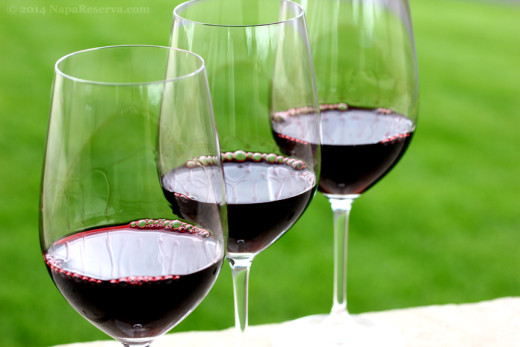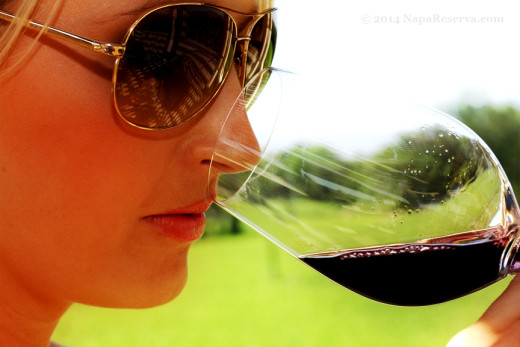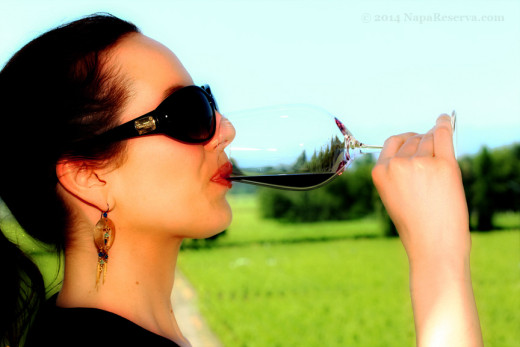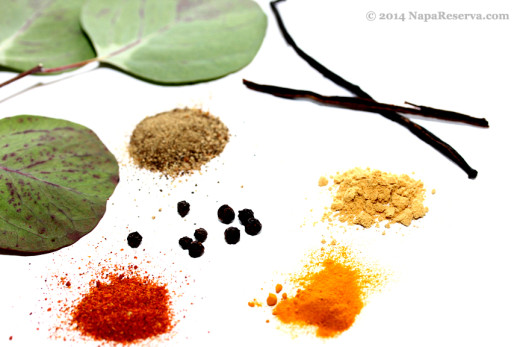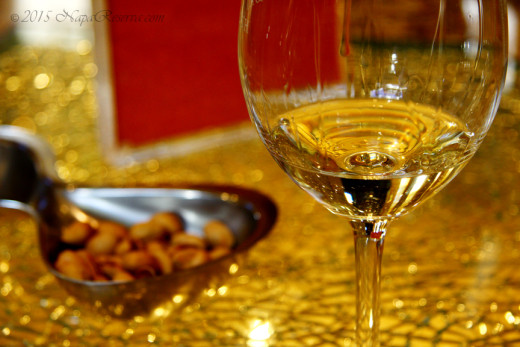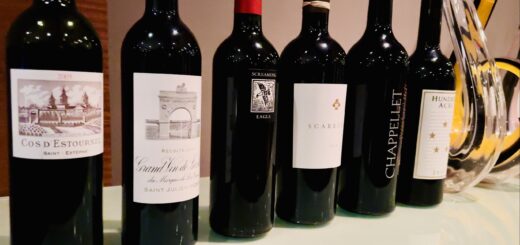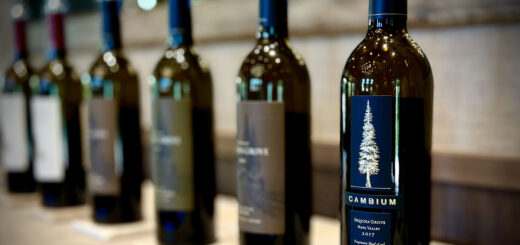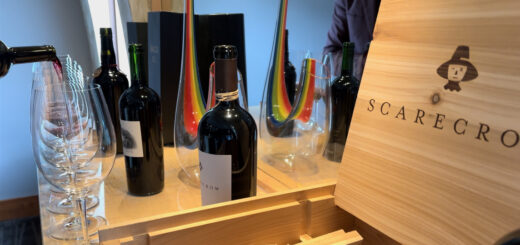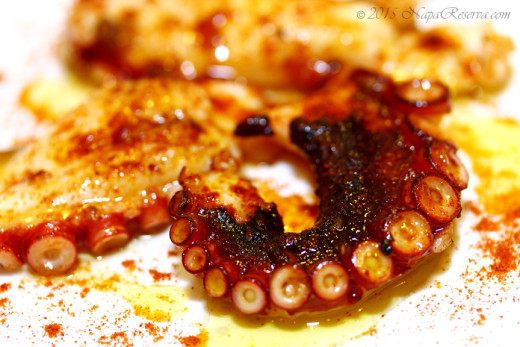Wines are like delicate fruits!
You have to admit that there are so many aspects of wine. From buying it, storing it, enjoying it, pairing it with food, etc… That sometime feels overwhelming and quite possibly taking the joy out of enjoying wine all together. Well, you’re going to love this! This very simple concept will strike you with a great understanding of wines. There is very little memorization, just a lot of relative common sense.
Wine is basically fermented grape juice that went through several steps, although sitting in the bottle, wine is as alive as fresh fruits and will continue to evolve over time in the bottle and after out of the bottle. Many aspects of wines can easily be comprehended by relating wines to fruits, nevertheless, wines started out as fruits in the first place.
Climate and Soil
When it comes to soil, the fruits of any plan to take on the flavor of where they are grown. Limestone, gravel, rocks will inject similar characteristic into the fruits, such as mineral and chalk. Clay on the other hand, will enhance the fruitiness.
Most fruits, if not all, when young are very tart or bitter -thanks to their sap and high acidity. They need sunlight to slowly convert their sap and acid into sugar, definitely the more enjoyable taste. In hotter growing regions, the extra sunlight injects higher sugar content into the grapes, each berry ripens and thickens its structure. Because of this, the end result wine will taste more ripe, higher in alcohol (sugar converts to alcohol during fermentation), and likely to have residual sugar.
The grapes (fruits) will take on different flavors where they are grown, and therefore impact the end result wines. Wines from hotter climate, grown on clay, will have more fruit-driven, sweeter and more ripe, often described as jammy or chewy.
Bottle-shock
Try bouncing your apple on the ground and let it sit for a few days, you’ll see bruises everywhere that will eventually rot making it not so tasty. Believe it or not, the same could happen to wine, known as bottle-shock. This usually happened right after bottling, and often during transporting, the extreme agitation causes all the chemical compounds to shut down, if open immediately the wine will taste muted, tight and astringent. Fortunately, unlike fruits, a few days of rest in the bottle will have it back to normal.
Breathing (aerate) wines
Have you ever bitten into an unripe fruit? tart, bitter, puckering mouth-feel. The yucky feeling takes forever to leave your mouth. Opening the bottle then drink it immediately is like eating an unripe fruit, especially red wines. Fruits take time to ripen like wines take time to open up after coming out of the bottle.
Did you remember leaving the banana out longer than intended, amazingly it tasted even better, softer, sweeter, more floral and even with a touch of tropical scent. Wine reacts in similar fashion, by aerating it, oxygen to have time to penetrate through the wine, ripening any fruit-like characters in the wine. Black dots will appear outside the banana, as result of (over) ripening, same way how wine will turn darker after sitting out for a while. The process known as oxidation, affecting wines the similar way it affects fruits.
Aging or Cellaring wine
It is true that banana and many fruits can ripen more after being plucked from their plants. But that is only true after they reach a certain level of maturity, you wouldn’t expect to pick a banana the size of your pinky and expect it to ripen more.
There are a large number of wines that can benefit from a few years in the cellar, a much smaller number of them will turn magical after a decade or so of aging. Robust, strong, yet tart, astringent, sometime bitter, rugged, gritty, tannic and overall just un-balanced, characters of wines that could use a few years away in the cellar. When wines age, a very small amount of oxygen finds its way through the cork and help evolve the wine -a lot like how a fruit is ripen its plant. Once complete, aged wines show more characters bringing the fruits to life, subtle tannins with more pleasurable fragrances, or nose. Even after aging, when opening a bottle of wine, especially the older ones, aerating it is just as crucial. Or else, you’ll be in for one big disappointment.
Wines started out as fruits, and still behave like fruits long after bottling, they continue to evolve, develop and mature into something else even better. They strike our senses from all corners, a sip of good wine like biting into many delicious plumed juicy fruits at one time. The constant changing, some could be unpredictable, is what makes it so intriguing. We don’t just enjoy wines like taking a bite of fruits, we instead fall in love with them, one sip at a time. Cheers!


